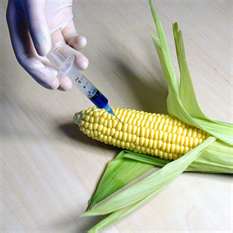Background: GM crops/foods were first put in the market in the 1990s. There are three generations of crops: First-generation crops have enhanced traits, such as herbicide tolerance, better insect tolerance, and better tolerance to environmental stress. Second generation crops include those with added-value output traits, such as nutrient enhancement for animal feed. Third-generation crops include those that produce pharmaceuticals, improve the processing of bio-based fuels, food, and fiber. One of the major issues in GM crops/foods is whether or not it is safe for humans to eat. Terms to Know: Food and Drug Administration (FDA): US government that controls food, dietary supplements, drugs, cosmetics, medical devices, raditaion-emitting devices, biologics, and blood products. Protects American citizens from potentiallty harmful products. GRAS: "Genetically Recognized as Safe" by FDA to a food additive tested to safety. United States Department of Agriculture (USDA): Department in the US governemt that develops and enforces policy related to farming, agriculture, and food. Crops Citation 2 Application GM foods can improve survivability and increase productivity of plants in hospital conditions. GM foods can also reduce the need to use large quantities of herbicides and pesticides. Crop Citation 2 |
Regulations and Policies: The United States does not require food labels to state the presence of genetically modified organisms and genetically modified ingredients in food products. The USDA regulates genetically engineered food plants through the Animal and Plant Health Inspection Service (APHIS). APHIS has the Federal Plant Pest Act (FPPA). "This legislation authorizes APHIS to regulate interstate movement (between states), importation (into the U.S.), and field testing of "organisms and products altered or produced through genetic engineering which are plant pests or which there is reason to believe are plant pests." (Federal Register, Vol. 58)." "Applying the term "plant pest" to a genetically engineered plant means only that the "nonpest" nature of the plant has yet to be demonstrated. All of the many field tests conducted to date have shown that the genetically engineered plants tested have no more "pest-like" qualities than their nonengineered parents." "APHIS regulations provide a list of the organisms regarded as plant pests so applicants know if the development of their product is subject to APHIS regulations. If an organism is not on the list, it still may be subject to APHIS regulations if it is an unclassified organism or there is reason to believe that the resulting organism is or will be a plant pest. An organism that is subject to APHIS regulation is called a "regulated article." "APHIS exercises its regulatory authority through a permit system. A company, academic research institution, or private scientist who wishes to move or field test a genetically engineered plant must obtain the necessary permit(s) before proceeding. This permit system is an extension of the long-standing permitting program used for naturally occurring plant pests. Crops Citation 11 |
Issues: Pros:
Cons:
Both: GM crops both reduce and increase biodiversity. Innovators Monsanto is relatively a new company. It focuses on agriculture and supporting farmers around the world in their mission to produce more while conserving more. They help by making seeds and crop protection chemicals through biotechnology. Syngenta is one of world's leading companies and is located in about 90 countries. They help by protecting the environment and producing crops that will resist against harsh conditions and grow to term. DuPont tries to provide food and protection to people everywhere. They operate in 70 countries and their innovations include crop protection, land management, producing seeds, and pest managment. Arcadia Biosciences develops agricultural products that benefit the environment and consumers and farmers. They also produce crops that are water and nitrogen efficient and salt tolerant. |
||

